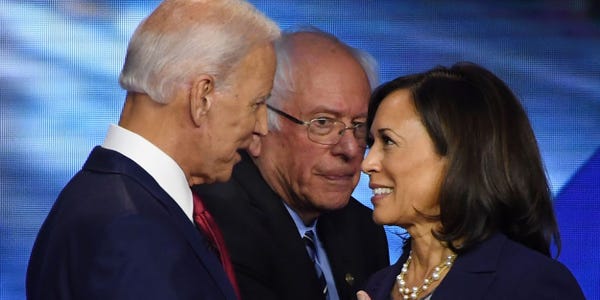(5 minutes read)
Celebrations are taking place in the US and among those who supported
Democrats across the world on the victory of Joe Biden and Kamla
Harris as President-Elect and Vice President –Elect respectively.
Though the newly elected presidium will take charge only by January 20
next year, reports suggest that hectic parleys are taking place among
the Democrat leaders and Biden’s possible advisors on what should be
the broad contours of the policy framework and priorities. Of course,
priority among them would be how soon and how well the country can be
steered clear of the Covid-19 pandemic, which have played havoc in
terms of lives lost, daily infections that refuse to come down and
deleterious impact on the economy, rendering millions unemployed.
Biden’s stand on the pandemic is seemingly realistic. In his victory
speech, Joe Biden said that the plan will be built on a bedrock of
science to “turn around” the coronavirus pandemic. Without losing any
time, the president-elect will announce a coronavirus task force,
possibly tomorrow. The canvas for onslaught on pandemic will not be
confined to the US alone. That should have a global outreach since
the virus had demonstrated pandemic knows no bounds and to come out
of the pangs, overarching economic policies are critical. Africa
needs more attention to get it bailed out from the deep economic
crisis caused by the pandemic.
The election has also thrown up some brownie points for the continent
in the election of Kamala Harris as the vice president -elect, who
can trace back her lineage to Jamaica and India and that way she is
the first black African American vice president of the country. More
than that, many prominent Democrats are going to play a decisive role
in shaping the foreign policy framework of the new Administration.
Prominent among them will be the charismatic Barak Obama, who was the
first African American President under whom Joe Biden served as Vice
President four year ago.
Admittedly, Obama Administration had a clear cut Africa Policy and a
senior functionary at the level of Assistant Secretary was there to
oversee the Africa desk. The Trump administration kept that post
vacant for a major part of his presidency and only later Africa had
come on its policy radar and that too after much cajoling and even
scathing criticisms from several quarters. Many held the view that the
late action was primarily to check the aggressive Chinese posture in
the continent and not driven by the importance of the region in
Trump’s pecking order.
Also, the Trump administration received flaks on several stands it had
taken at various points of time. The sectarian and vituperative
comments of Trump supporting the white farmers in South Africa had
racial undertones. Remarks on the young Ethiopian Prime Minister Abiy
Ahmed, who Trump believed took the Nobel Prize for Peace last year
from his teeth, were considered as unbecoming for the US president.
Continued sanctions on Zimbabwe in the midst of gigantic economic
challenges being faced by that country raised eyebrows of the
international community. Polarization tactics played on Somalia’s
leadership to recognize Israel in return for lifting sanctions is
widely perceived as an arm twisting tactic. Unwarranted interferences
in the case of selection of the President of African Development
Bank (AfDB), the spoil sport being presently played in the selection
of director general of World Trade organization (WTO) etc are some of
the prick points that Africans feel against the earlier dispensation.
Hopefully, in the Biden era such uncalled interferences in matters
that should be left to the Africans would not be there. That is also a
matured stand the Biden administration can take in the case of Africa.
Last but not the least, the contraction in world trade mainly due to
unilateral decisions of the Trump administration purportedly to
checkmate China had precipitated a trade war of global dimensions.
Almost all African countries have become victims of those lop-sided
unilateral decisions, flouting the relevance of multilateral
organizations like WTO to settle such disputes amicably. The crash of
oil and commodity prices can be traced back to the trade war in one
way or the other. African economy, which contributes more than 30% of
the world’s mineral trade and a good proportion of oil trade, is
undergoing a harrowing experience. The new administration should have
a proactive policy to address these issues, which can help the US to
be back as the world leader in every sense. Incidentally, that is also
the vision set out by Joe Biden in his first address to the nation,
after declaring him as the winner of the presidential race





